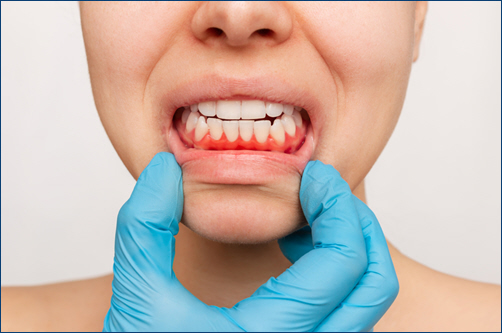Annual Dental Exams for Your Health
Annual dental exams play an important role in maintaining your oral and overall health. While daily brushing and flossing are essential, regular professional exams allow your dentist to detect issues early, prevent future complications, and keep your teeth and gums in peak condition. Here’s why prioritizing an annual dental exam should be part of your health routine.
Catching Issues Early Saves Time and Money
 One of the biggest advantages of annual exams is early detection. Your dentist can identify problems like cavities, gum disease, or enamel wear in their early stages, which makes treatment faster, simpler, and less costly. Left undetected, small issues can develop into larger problems, leading to more complex treatments such as root canals, extractions, or crowns. Regular exams let your dentist address issues before they become painful or expensive.
One of the biggest advantages of annual exams is early detection. Your dentist can identify problems like cavities, gum disease, or enamel wear in their early stages, which makes treatment faster, simpler, and less costly. Left undetected, small issues can develop into larger problems, leading to more complex treatments such as root canals, extractions, or crowns. Regular exams let your dentist address issues before they become painful or expensive.
For example, early-stage gum disease, known as gingivitis, can be reversed with proper care. However, untreated gingivitis can progress to periodontitis, a severe form of gum disease that may cause tooth loss and even impact your overall health. With an annual exam, your dentist can address gingivitis before it escalates, saving you time, discomfort, and money.
Preventing Decay and Gum Disease
Even the best at-home care can miss areas where plaque and tartar accumulate. Annual exams include professional cleanings to remove this buildup, reducing your risk of cavities and gum disease. Plaque, a sticky film of bacteria, hardens into tartar over time, which only a professional cleaning can remove. This process keeps your gums healthy, your enamel strong, and your breath fresh.
Gum disease doesn’t just impact your mouth—it has links to several health conditions, including heart disease, diabetes, and respiratory issues. By getting annual dental exams, you not only protect your oral health but also reduce your risk of complications that affect your overall well-being.
 Protecting Against Oral Cancer
Protecting Against Oral Cancer
Oral cancer screening is a vital part of every annual dental exam. Dentists check for signs of oral cancer by examining your gums, tongue, and surrounding tissue for unusual growths or discolorations. Early detection of oral cancer significantly improves the chances of successful treatment, making routine screenings crucial, especially for patients who smoke, drink alcohol, or have a family history of cancer.
Personalized Care and Prevention Tips
Annual exams give you a chance to discuss any concerns or questions with your dentist, from sensitivity to grinding to preventive care tips. Dentists provide personalized advice based on your unique oral health needs, helping you build habits that support long-term dental health. They can recommend tailored solutions, such as fluoride treatments, sealants, or custom mouthguards, that protect your smile between visits.
Invest in Your Health with Annual Exams
Annual dental exams are an investment in your health, protecting you from future issues and ensuring that your smile remains bright and strong. By prioritizing these check-ups, you’re not only caring for your teeth and gums but also supporting your overall wellness. Schedule your annual dental exam today and take a proactive step toward a healthier, more confident smile.



 include red, swollen gums that may bleed during brushing or flossing, persistent bad breath, and gum recession. As the disease progresses, it can cause pockets to form between the teeth and gums, leading to bone and tooth loss if untreated.
include red, swollen gums that may bleed during brushing or flossing, persistent bad breath, and gum recession. As the disease progresses, it can cause pockets to form between the teeth and gums, leading to bone and tooth loss if untreated.